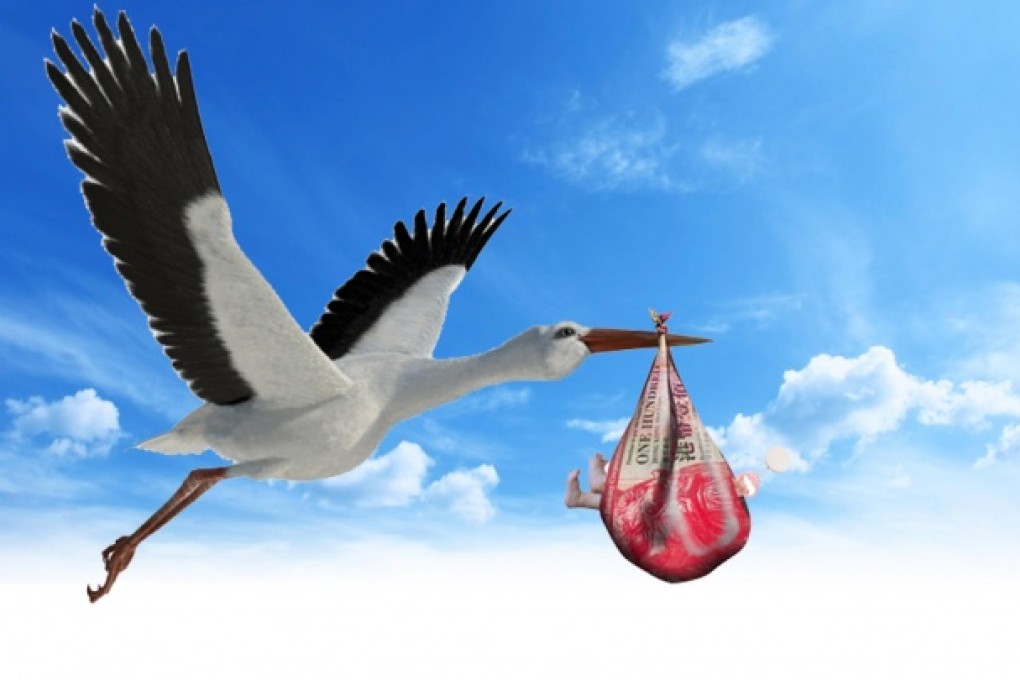Forking out for the stork
Pregnancy can be fraught enough, but the medical bills for giving birth in Hong Kong sometimes add an extra layer of anxiety for parents-to-be

Maternity services offered at Hong Kong hospitals present a wide range of choices for almost any budget. Selecting the right one is a personal decision that involves considerations such as affordability, the level of comfort desired during the hospital stay, quality of medical care and intangibles such as the ability to bring in an outside doctor.

Ng and her partner reached their decision after conducting a cost/benefit analysis on the various options. In the end, they selected a trade-off, utilising Hong Kong's publicly-funded medical system for the delivery of the baby, but supplementing ultrasound scans and prenatal visits throughout the pregnancy with a private doctor.
Ng, who is 17 weeks into her pregnancy, estimates the total medical bill for having her baby at between HK$30,000 and HK$40,000.
Ng said a big factor in the decision were uncertainties over costs at private hospitals. Private hospitals offer maternity packages based on natural births or caesarean deliveries, but the costs easily add up beyond the advertised price in the brochure. It costs more to upgrade the room, which can range from a shared ward with multiple beds to a private hotel-like suite. An epidural analgesia shot is extra. Some hospitals even charge a fee to have the father present in the room during the delivery.